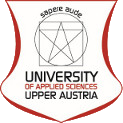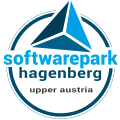Integrated Methods for Robust Production Planning and Control
Funded by: FFG
Partners:
- FH OÖ Campus Steyr
- oxaion gmbh
- Banner GmbH
Despite many methodological advances, automated production planning optimization is still
not widely used in practice. Instead of relying on Advanced Planning and Scheduling (APS)
systems, many companies delegate operational planning decisions to their employees in
individual production departments – a task that becomes increasingly difficult due to market
volatility and complexity of the production processes. Thus, companies are unable to achieve
potential savings which amount to millions of Euros each year. Unlocking this potential would
lead to opportunities such as the reduction of the cost pressure arising out of the production
location in high-wage countries within the EU, as well as investing in increased capacity and
modernization (e.g. environmental) of the existing plants.
In the present request for funding, we pursue a new and complementary approach to exploit
the potential savings in production planning. With the developed simulation generator
SimGen at FH OÖ Steyr Campus, production processes which include planning and control
of various companies can be modeled and analyzed holistically. The resulting digital model
of the production company will be controlled, similarly to the real company, by the use of
production planning methods such as Material Requirements Planning (MRP) and matched
regarding the real and virtual key performance indicators.
However, the aforementioned planning methods require a multitude of parameters, for
instance MRP requires 3 parameters per material and low-level code, which are critical for
production efficiency. Due to the wide-spread use of these strategies, negative effects of bad
parameterizations are noticeable, on the one hand in the higher operational planning effort of
the individual departments to handle the increased burden of work, and on the other hand in
worse inventory and service levels.
With the developed optimization environment HeuristicLab at FH OÖ Hagenberg Campus,
these planning parameters will be improved regarding cost efficiency and service level
through an integrated simulation-based optimization approach. A tradeoff between cost
efficient and stable respectively robust parameters should be achieved. Insights into the
evaluation of stability and robustness during the optimization run are obtained and new
methods for optimization are developed. Additional insights are gained in terms of the
potential savings’ extent arising out of the use of improved parameters. With the partners
oxaion GmbH and Banner GmbH an exploitation partner and an end user support this
endeavor.


